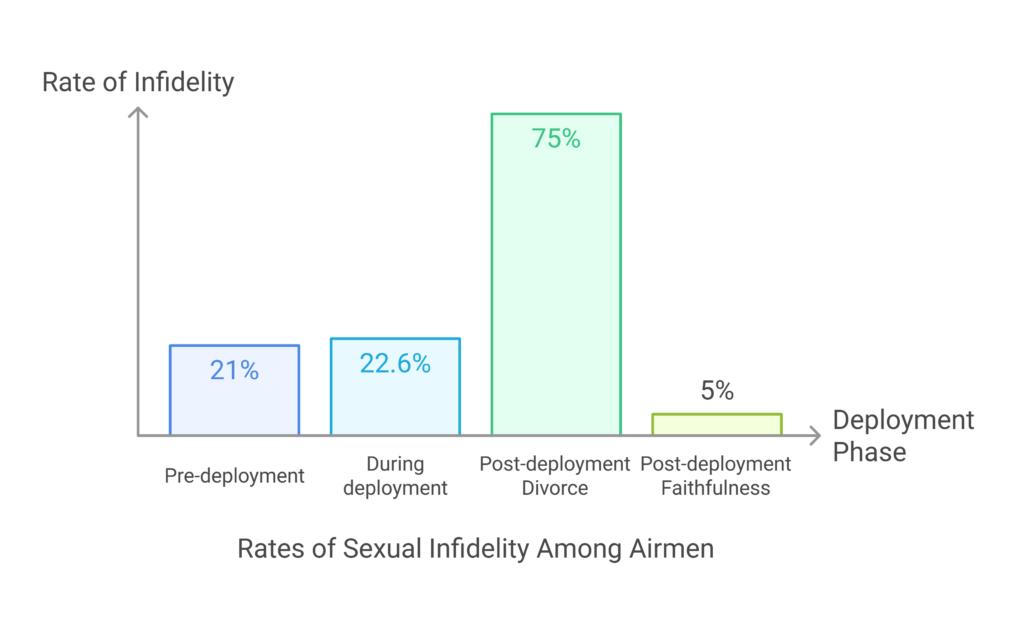Key points
Here are 3 key points about if you should try getting in a relationship before military:
• Try dating before joining the military.
• Military service can be lonely for both people involved.
• Starting a new relationship during service is difficult.
Contents
- 1 Key points
- 2 Military Relationships
- 3 Military Life and Dating: What to Expect
- 4 Being Ready to Start a Relationship
- 5 Communication in Military Relationships.
- 6 Building a Strong Foundation.
- 7 Building Trust and Mutual Help
- 8 Deciding to Have a Relationship Before Enlistment.
- 9 Talking about Future and Common Goals.
- 10 Long-term Compatibility Through Love Languages.
- 11 Frequently Asked Questions (FAQ)
Military Relationships
It can be challenging to get into a relationship before the military. Relationships get put under intense strain when a partner enters the military. Before heading back to the singles scene, really think through how your life will change.
A look at military life and how it can affect relationships.
It often implies long-term separation from your significant other. Deployments can last for at least 6 months or more. Military personnel often change duty locations even when not on deployment. It’s hard to keep a relationship going at a distance.
High communication job demands in the Military impact relationships. Military personnel have to work long hours. They don’t have much say in their schedule. These can all affect communication and time with your partner.
Cheating is a real possibility

- Pre-deployment: Around 21 percent of airmen already reported having an affair, which fits in line with general community samples.
- While the Airmen were deployed, 22.6% were unfaithful, which is a lot more than the 1.5-4% estimated yearly in the community.
- Airmen having experience of relationship distress, prior separation, and steps taken for divorce, pre-deployment, were at increased risk of infidelity during deployment.
- About 75% of the people who cheated got divorced six to nine months after deployment while only five percent of those who didn’t cheat got divorced.
Balderrama-Durbin C, Stanton K, Snyder DK, Cigrang JA, Talcott GW, Smith Slep AM, Heyman RE, Cassidy DG. The risk for marital infidelity across a year-long deployment. J Fam Psychol. 2017 Aug;31(5):629-634. doi: 10.1037/fam0000281. Epub 2017 Jan 5. PMID: 28054799. Subject Count: 69
Understanding the importance of love languages in military context.
Understanding your love language can help strengthen a military relationship. For instance, if quality time represents their love language, they’ll find the separations harder. If it’s physical affection, the space will be quite difficult to handle.
Knowing what your partner needs makes it easier to connect despite the distance. Like planning video calls regularly or sending boxes with love. If you know this beforehand, the relationship will set a good foot before getting into the military.
Military Life and Dating: What to Expect
It can be difficult for relationships to survive the military life. Moving away and going on assignments makes it difficult to stay tight. Time together is limited. Partners often feel isolated and alone.
Frequent relocations and deployments.
Military families don’t stay in one place for long. Always packing and leaving for new places makes it tough to make friends. Deployments also often lead to years apart. Strong relationships can really take a hit.
Stress and time constraints.
Military life is demanding. Hours and a schedule that can change at the last minute don’t help. Work-related stress adds a burden on the relationship as well. The partners feel overwhelmed as they cope in trying to manage everything.
Emotional and psychological impacts.
Serving in the armed forces can be quite stressful. Being in a military relationship takes a toll on both partners emotionally. Struggles with trauma and mental health can affect intimacy and communication. Dealing with a lack of understanding or knowledge can hurt a military marriage.

Ruhlmann LM, Nelson Goff BS, Novak JR, Fuss C, Gnagi T, Schiferl M. Psychological and relational health profiles of soldiers in committed romantic relationships. J Fam Psychol. 2018 Dec;32(8):1057-1067. doi: 10.1037/fam0000471. Epub 2018 Oct 8. PMID: 30299132. Subject Count: 7,866 soldiers
Being Ready to Start a Relationship
You need to self-reflect to figure out if you are really ready to be in a relationship. Look inward first. Are you confident in yourself and your situation? Being in a relationship won’t solve problems you might have. Are you prepared for the commitment involved in dating as a military person? Long distance is hard. Think about what you wish for and if your emotions is ready for it.
Self-awareness and personal goals.
Have a good understanding of yourself before you get involved in something serious. What do you wish to achieve in life? Would dating someone in the military align with your goals? You will want to be self-reliant and have hobbies.
Understanding commitment levels
If you date a soldier, you date their life. There will be time away from you. Are you ready to have patience and wait? Make it a point to bring up exclusivity and trust that you both agree. Communicate what you need and what you want from your relationship.
Evaluating emotional resilience
Ensure emotional resilience for a healthy relationship with a military significant other and expect hard days. You’ll need to be strong, flexible, and able to feel secure. Think about how you manage stress and who helps you. Having proper coping strategies will make most of the difference through deployment and time apart.
Communication in Military Relationships.
Good communication is vital in military relationships. Whether by phone, online or old-fashioned letter-writing, military relationships need a lot of communication. However, it is worth communicating clearly and truthfully.
Importance of communicating in a clear and honest manner
When your lover is deployed, communication helps strengthen your relationship. Talking helps maintain communication and gets closer when one partner is away on a deployment. Avoid hiding emotions or information related to the relationship. Honesty prevents future disagreements.
Molding communication styles to military requirements.
The military lifestyle can make regular communication tough. Couples must be adaptable and seek new means of communicating. Use technology such as video calls and texting. If possible, catch up at a scheduled time. Knowing how the other is doing allows communication to be modified as needed.
The significance of love languages in communication.
Knowing your partner’s love language gives hints for better communication. They may like little gifts, kind words and spending time. Identifying love languages and expressing them is a great way to show love and care, even from afar. You can make your partner feel special through small gestures.
Building a Strong Foundation.
Communicate freely before they get deployed. Discuss your dreams, worries, and aspirations with empathy. Listen without judgment and build trust. Focus on the little things to build intimacy and try to understand each other’s love languages and meet emotional needs.
Building Trust and Mutual Help
Setting Realistic Expectations.
Recognize that it will be difficult for both. Talk about the important things in your relationship. Your commitment will be tested and it won’t be easy. Be prepared for some difficulties as well as pleasant encounters. Set goals for contact and quality time together that are reasonable. Make Adjustments as Per the Situation
Military Coping Skills Development Strategies
Look up common problem such isolation, uneasiness, and reintegrating into society. Think of good ideas for coping abilities. Get help from other military couples.
Talk to relieve tension and worries. Make the most of your visits and calls. Celebrate important occasions separately together.
Aim for shared purpose and values. Therapeutic assistance might help to process difficult emotions. You must be forgiving of one another.
Deciding to Have a Relationship Before Enlistment.
It can be difficult to start a new military relationship. Here are some things to consider.
Pros.
– Having a special someone to hold on to will help you stay grounded when the training or deployment gets tough.
– Having someone in a relationship can help you with deployments and training as well.
– You can share the experiences with someone along the way.
Cons.
– Being around uncertainty in military life can put lots of stress on new relationships.
– Deployment will often keep you both apart for some time. Long distance is hard.
– Your relationship will become a lot more complex because of military life. You will need to learn how to balance it.
Talking about Future and Common Goals.
Before you start a relationship with someone, it’s best to talk about it honestly and openly.
– How do you see your future, individually and as a couple?
– Discuss your career goals and what life in the forces will entail
– If you have a long-term agreement in future.
– How will you keep the relationship during separations?
– If you’re both thinking the same about the big things, like getting married or having children.
Long-term Compatibility Through Love Languages.
Knowing each other’s love languages can help to build a foundation.
– Both of you must discuss that what makes you feel supported and loved.
– Try your best to show your love in the way the other likes it.
– Don’t forget that love languages can change over time.
– Every now and then, check-in to ensure you both still feel valued and cared for.
– Be ready to change with time in the relationship.
Frequently Asked Questions (FAQ)
What are some ways to stay connected with a boyfriend in boot camp?
Send handwritten letters, make care packages, schedule video chats when possible. Focus on being supportive and understanding during a challenging time.
Is it hard to stay faithful when your spouse is deployed?
It can be challenging, but communication and setting boundaries are key. Lean on your faith, friends, and family for support during deployments.
How can I reassure my girlfriend when I get deployed?
Be open about your feelings, make time for check-ins, and remind her your military service is temporary. Offer practical help like access to accounts and emotional support.
What matters most in a military marriage?
Trust, communication, flexibility and shared commitment will help a marriage thrive despite separations and frequent moves.
How can we reconnect after a long deployment?
Go slow, communicate openly, seek counseling if needed. Focus on quality time and don’t expect to pick up where you left off immediately.
Is marrying young common in the military?
It’s fairly common to marry young due to benefits and a desire for stability. Make sure you’re ready and build a solid relationship foundation first.
How do I avoid feeling lonely as a military spouse?
Nurture supportive friendships, stay busy, join spouse groups on base. Set personal goals and take advantage of family time between deployments.
What are the biggest reasons military marriages fail?
Frequent separations, relocations, immaturity, and a lack of support and trust. Prioritize communication and your relationship when together.
Should we live on or off base as a military couple?
Consider convenience, finances, housing quality, personal preferences, and access to military resources. There are pros and cons to both options.
How can we make the most of our limited time together?
Plan meaningful activities focused on reconnection. Minimize distractions, communicate openly, and make your relationship a priority.

I am a free-spirited author with the focus of relationships, travel, mental health, and womanhood. I am still new to the writer scene but am excited for the journey that awaits.